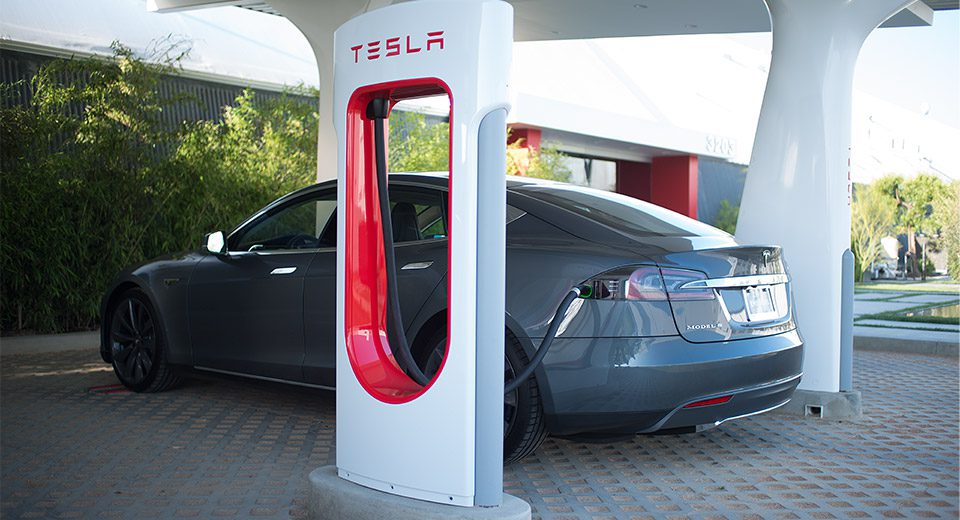Tesla Motors, easily the world’s most successful electric car manufacturer, recently dropped hints on entering the Indian markets with an affordable sedan. Earlier this year, CFO Deepak Ahuja was quoted as saying “India is a huge potential market where we need to be. I think sometime in 2015 seems to make sense to enter India, but it’s difficult to make an official announcement.”
Tesla has found success in the multiple markets it’s ventured into. It’s loved by the Americans, and it continues to sell well in Europe and China. But India is a different ballgame altogether, and it’ll be interesting to see if India is ready for Tesla yet.
Related: Tesla Motors Is Coming to India
Tesla is currently working on developing a 3rd generation car – a smaller four door sedan called the Tesla Model 3 to target emerging markets like India. According to Tesla Chief Information Officer Jay Vijayan, the target price for the Model 3 is somewhere between $30,000 – $40,000, which converts to approximately Rs.19 – 26 lakh on current exchange rates. In reality, it’d be a lot more expensive if it were to launch in India.
Although the Model 3 was due for a launch in 2015, the project has been facing massive delays, and it looks highly unlikely that the car would be launched anytime soon. Even if it does and makes it to India, Tesla isn’t guaranteed success in the country. The carmaker, who’s primary advertising strategy rides on the recognition Elon Musk commands, will find it difficult to sell its vehicles here. There are multiple challenges Tesla Motors will have to overcome if it wants India to work out as a successful market.
Challenge #1 – Price
The biggest challenge for Tesla when it comes to pricing would be the steep import duties in India – in excess of 100%, which could make importing cars difficult – because Tesla is unlikely to open manufacturing in the country. However with the new government in power, which is seen as more pro-business, Tesla could negotiate with the government to bring down the duties. Bagging subsidies to eco friendly electric car customers is a highly unlikely possibility in a country like India – which still struggles to feed most of its population. A subsidy would be seen as a colossal waste of taxpayer money, and thus probably won’t ever happen in the near future.
Assuming the Model 3 is priced at around Rs. 40 lakhs on its India launch – it’s a steep price for Indian consumers. India is a very price conscious market (although that is slowly changing) – Indian consumers desire value, but many aren’t willing to pay more for it. The most sold vehicles in India continue to be well below the Rs. 10 lakh range.
Challenge #2 – Infrastructure
Related: Tesla’s Gigafactory Will Change How The World Consumes Energy
Another major obstacle for Tesla is the lack of proper infrastructure like Supercharging facilities in India. This could be tackled by installing Supercharging stations in important places, but it’ll be a risky affair if car sales remain weak. Additionally, it’s not wrong to expect cases of solar panels being stolen overnight in India.
Also, since a single charge only lasts less than 500km, it’ll be difficult to take the car for long drives into places without charging facilities. A related problem is that of periodic power cuts in many parts of India. While service stations and petrol pumps rarely run out of oil, power cuts are a very common occurrence in India. As such charging at home could become problematic during periods of prolonged power cuts. Of course one could install solar panels for this purpose, but they would vastly increase the costs.
Challenge #3 – Brand
At the price range at which Tesla is planning to sell its cars in India, it’ll face competition from the entry level models of luxury car makers like BMW, Mercedes Benz, and Audi, which are already established brands in the Indian market. Keeping in mind the brand consciousness of Indian consumers, there’s significant uncertainty about whether customers would opt for a relatively unknown electric vehicle vis-à-vis a premium petrol or diesel car. Remember how a large part of the Indian crowd wanted to stuck to Nokia devices when smartphones were in their early stages?
Challenge #4 – Market perception on EVs
There are also a lot of misconceptions about Electric Vehicles among the Indian public, most of whom see them as underpowered and unreliable, although Tesla has already proved that EVs can be as powerful as, if not more than, petrol and diesel cars. This is the primary reason for the why the sale of existing electric cars in Indian markets, such as the Mahindra Reva, has been weak. Tesla would need to do a lot of advertising and promotion of its products to remove this misconception, which would only add to its costs. Tesla spends zero on advertising as of yet, claims Elon Musk.
Another consideration which would prevent buyers from purchase is the concern for repairs. If something breaks down, the car needs to be sent all the way back to the country of manufacture for repairs, unless Tesla runs maintenance options in the country – which in my opinion, will be unlikely . Since most parts used would be proprietary parts not manufactured anywhere else, it’ll be very difficult for any car owner to get his Tesla car repaired in India. This is a great disadvantage when compared against petrol or diesel cars, which can be easily repaired within the local mechanic’s garage.
So with all these problems and concerns, it seems Tesla won’t be able to replicate it’s success it had in other countries, in India. Therefore, the only conclusion we can reach is that India is not ready for Tesla, yet.
